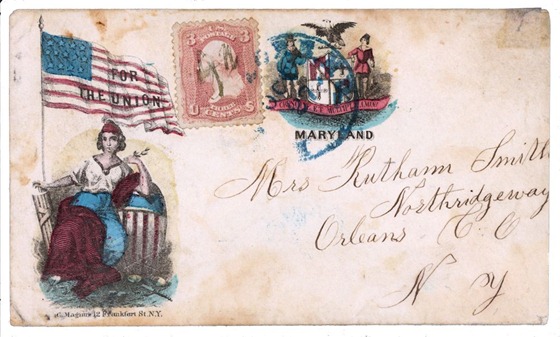30th.—The Richmond Examiner of yesterday contains Lincoln’s Proclamation, declaring all the negroes free from the 1st of January next! The Abolition papers are in ecstasies; as if they did not know that it can only be carried out within their lines, and there they have been practically free from the moment we were invaded. The New York Tribune is greatly incensed at the capture of Harper’s Ferry; acknowledges that the battle of Sharpsburg was a disaster to them—Sumner’s corps alone having lost 5,000 men in killed and wounded. It says it was the “fiercest, bloodiest, and most indecisive battle of the war.” Oh, that their losses could convince them of the wickedness of this contest! but their appetite seems to grow on what it feeds upon. Blood, blood, is still their cry. My heart sickens at the thought of what our dear soldiers have yet to pass through. Arise, O God, in thy strength, and save us from our relentless foes, for thy great name’s sake !
Mr.—— has improved so much in health that we return in a few days to Richmond, that he may again enter upon the duties of his office. Ashland is our destiny for next year; the difficulty of obtaining a house or board in Richmond has induced us to join a party of refugee friends in taking a cottage there. Our children are already there, and write that a comfortable room is awaiting us. Last night we received a message from Mrs. and Miss S., of Alexandria, that they were in this place, having run the blockade, from their oppressed home, during the battles around Richmond, when many of the soldiers had been withdrawn, and of course the surveillance of the old town had become less severe. Mrs. D., of Alexandria, and myself went directly after breakfast to see them. They had much to tell of the reign of terror through which they had gone, and nothing very satisfactory of our homes. Mrs. D’s house was occupied as barracks, and ours as a hospital. Miss had accompanied our friend Mrs. there one day during the last winter; it was used as a hospital, except the front rooms, which were occupied by General N. (a renegade Virginian) as headquarters. Can it be that any native of Virginia can be untrue to her now? Let General Scott, General Newton, and Captain Fairfax answer! General N. married a Northern wife, which must account for his defection. The ladies drove up to our poor old home, the road winding among stumps of trees, which had been our beautiful oak grove; but one tree was left to show where it had been; they inquired for Mrs. N. She was out, and they determined to walk over the house, that they might see the state of our furniture, etc. They went up-stairs, but, on opening the door of our daughter’s room, they found a lady standing at a bed, cutting out work. Mrs. closed the door and turned to my chamber; this she found occupied by a family, children running about the room, etc.; these she afterwards found were the families of the surgeons. With no very amiable feelings she closed that door and went to another room, which, to her relief, was unoccupied; the old familiar furniture stood in its place, and hanging over the mantel was my husband’s portrait. We left it put away with other pictures. The wardrobe, which we had left packed with valuables, stood open and empty; just by it was a large travelling-trunk filled with clothing, which, she supposed, was about to be transferred to the wardrobe. She turned away, and on going down-stairs met Mrs. N., who politely invited her into her (!) parlour. The piano, sofas, etc., were arranged precisely as she had been accustomed to see them arranged, she supposed by our servants, some of whom were still there. This furniture we had left carefully rolled together, and covered, in another room. The weather was cold, and the floor was covered with matting, but no carpet. Mrs. N. apologized, saying that she had lately arrived, and did not know that there was a carpet in the house until, the day before, she was “exploring” the third story, and found in a locked room some very nice ones, which the soldiers were now shaking, and “she should make herself comfortable.” She had just before been expressing holy horror at the soldiers in Alexandria having injured and appropriated the property of others. Mrs. looked at her wonderingly! Does she consider these carpets her own? Our parlour curtains were upon the passage-table, ready to be put up. She found them, no doubt, while exploring the third story, for there we left them securely wrapped up to protect them from moths. Ah! there are some species of moths (bipeds) from which bars and bolts could not protect them. This we did not anticipate. We thought that Federal officers were gentlemen!











